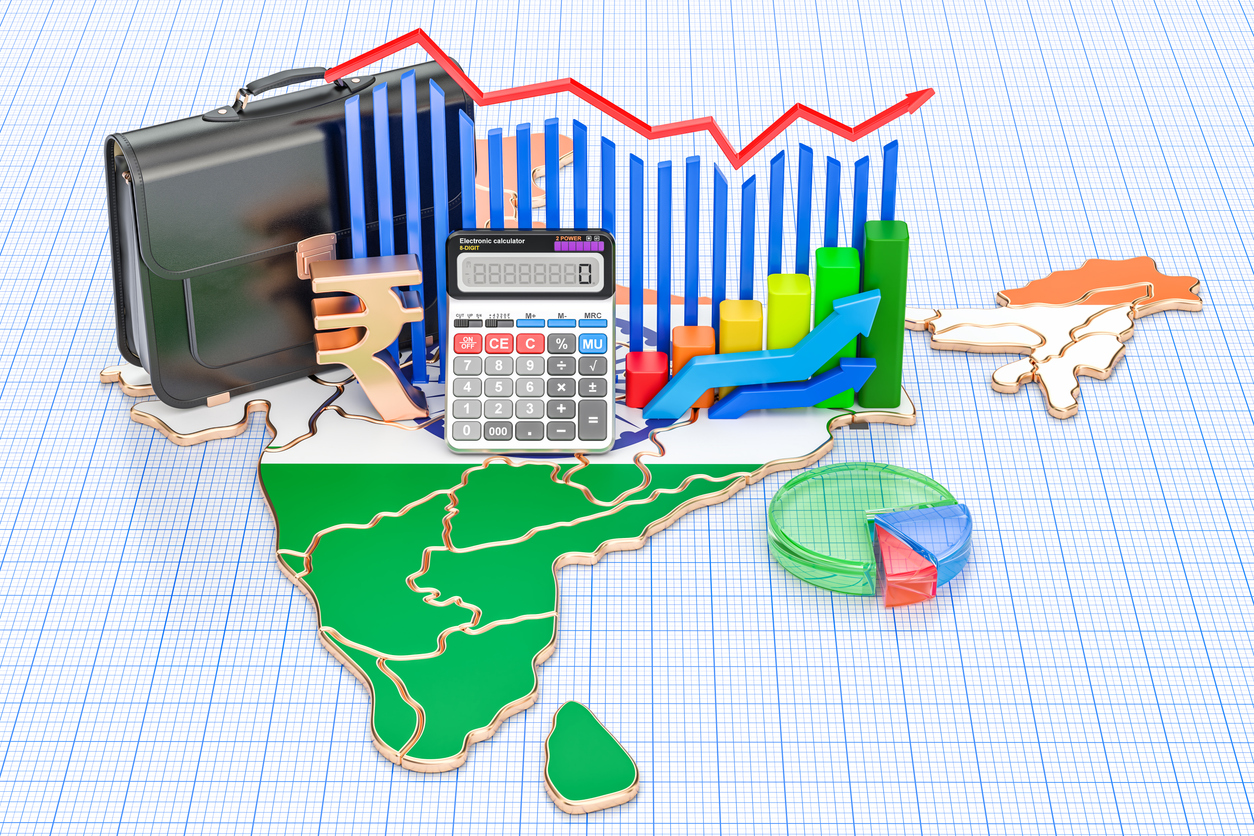
January 13, 2025
India is projected to become the fourth-largest global economy by GDP in 2025, and its resilient economy will pave the way for global leadership
The nation’s demographic dividend, supported by skilling initiatives, is a significant asset, with over 65% of the population entering the workforce by 2030
Artificial intelligence is projected to contribute $967 billion to India’s GDP by 2035, positioning the country as a global leader in AI adoption and innovation
Small and medium businesses (SMBs) contribute nearly 30% to GDP and are being empowered with capital, digital tools, and financial literacy programmes

As India approaches 2025, it stands on the brink of becoming the fourth-largest economy by GDP. Against a backdrop of global challenges, India’s economic resilience provides an opportunity to redefine its global role and set benchmarks for economic leadership.
Skilling the workforce to harness the demographic dividend
India’s demographic dividend, with over 65% of its population aged between 15 and 64, presents a unique advantage. Recognising this potential, government initiatives like the Skill India Mission accelerate workforce development. Collaborations like Visa’s partnership with the Tourism and Hospitality Skill Council aim to upskill 20,000 youth across 10 states, boosting employment and improving service standards in labour-intensive sectors like tourism.
Artificial intelligence: A billion-dollar catalyst
India holds 16% of the global AI talent pool, with the sector expected to contribute $967 billion to GDP by 2035. Companies like Visa are leveraging AI in payments to enhance cybersecurity and personalisation while preventing fraud. By fostering collaborations with regulators and governments, AI innovations are securing India’s expanding digital economy and reshaping the future of payments.
Digital transformation driving financial inclusion
India’s transformation into a less-cash economy, propelled by initiatives like UPI, is a global success story. Digital transactions are set to triple by FY29, with Tier 2 and 3 cities adopting mobile contactless payments and biometric authentication technologies. Visa’s partnerships, such as its Digital Village Adoption Programme, have trained 50,000 rural citizens, half of whom are women, in secure digital finance practices across 900 villages.
Empowering small and medium businesses
SMBs, contributing 30% to India’s GDP, are crucial to economic growth. However, challenges such as limited capital and digital adoption persist. Through collaborations with NGOs and initiatives like the Visa Foundation, over 3 million women-led small businesses are empowered with financial resources and upskilling opportunities, enhancing income and fostering economic independence.
Enhancing connectivity for tourism and economic growth
Investments in infrastructure, including railways, highways, and airports, boost connectivity and stimulate local economies. Visa’s expertise in implementing cashless public transit projects globally offers a roadmap for India to integrate digital payments into its tourism infrastructure, ensuring a seamless travel experience for both domestic and international tourists.
Achieving the Viksit Bharat vision through collaboration
Achieving India’s vision of becoming a $30 trillion economy by 2047 will require a multi-stakeholder approach, combining government initiatives with private sector innovation and civil society support. With its commitment to financial inclusion, innovation, and digital empowerment, Visa remains a key partner in India’s socioeconomic progress.
India’s path to becoming a global economic leader hinges on collective efforts to harness its demographic strengths, embrace technological advancements, and empower small businesses. Together, these drivers will ensure the country’s rise as a confident, modern, and inclusive global powerhouse.
Source: Business Standard